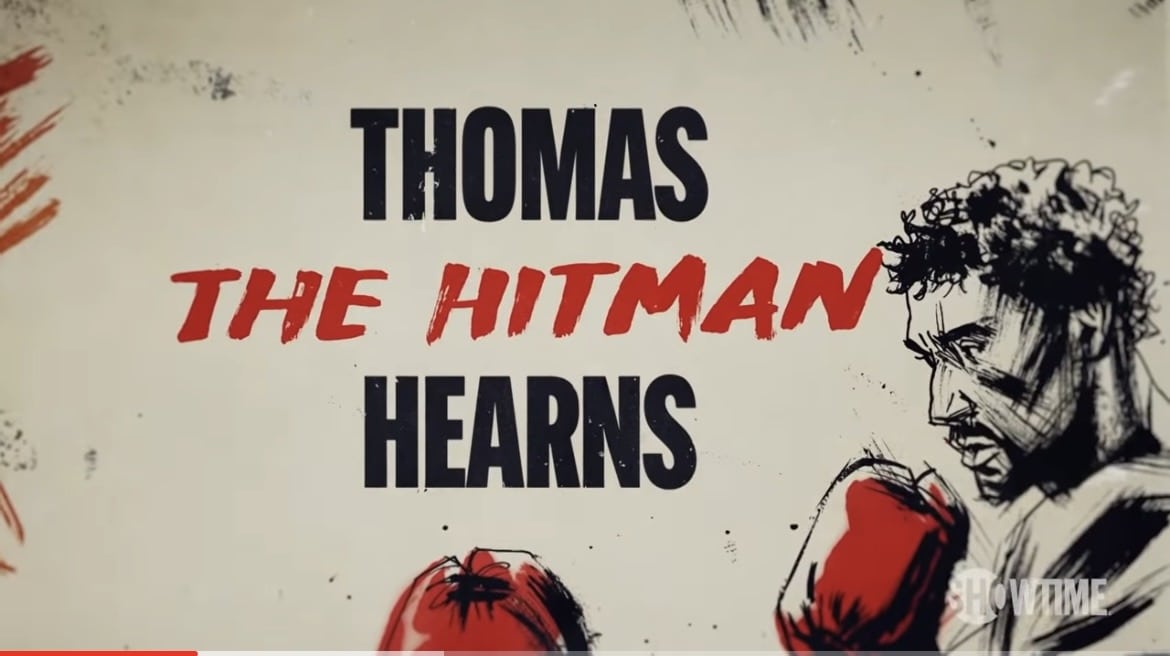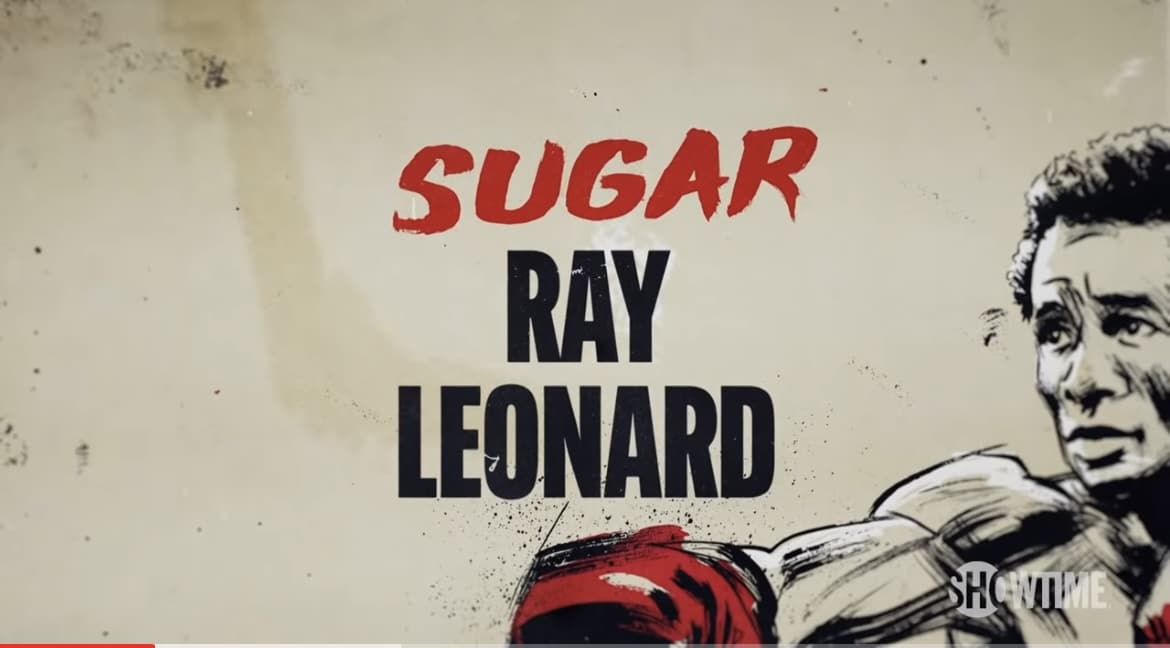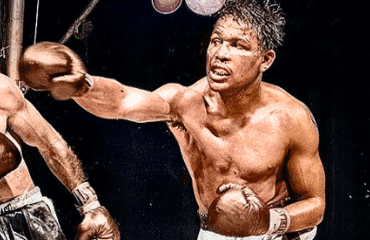“It is easier to build strong children than repair broken men.”—Frederick Douglass
Episode two of The Kings places a large amount of its focus on the relationship between trainer and fighter. Three of the four kings (Hearns, Duran, and Hagler) labored through their lives with absent fathers and single mothers. Their respective trainers, Emanuel Steward, Ray Arcel, and the Petronelli brothers served as de facto fathers.
Steward and Hearns were incredibly close, and while Arcel and Duran were tight as well, Duran was also under the opportunistic wing of Panamanian millionaire Calos Eleta, who became Duran’s manager on a handshake as Duran could neither read nor write. But the most telling and moving comment on the closeness of the fighter/trainer relationship comes from Marvin Hagler, a man who did not trust easily in general, but even less so of white people specifically. Hagler became so close to Pat and Goody Petrinelli that you when you hear him state his one request of them, “don’t hurt me,” it just about breaks your heart.
These makeshift family bonds play out in an America where Ronald Reagan has ascended to the presidency on a call for a return to the values of yesteryear, to a time before the civil rights era, when Jim Crow was still in full flight. Reagan used coded, racist language when cherry-picking anecdotes about “welfare queens” and absentee fathers. It’s not that Reagan was wrong that there were problems in the family unit as it relates to minorities in America, but his interpretation of the “why” was plainly off-base. Reagan refused to blame a system built to keep minorities down. Instead, he took issue with the programs they so desperately needed to stay afloat.
What becomes clear about all four kings is that the only path forward they had to better themselves was through violence, and that included the so-called golden boy, Ray Leonard.
While Leonard did grow up with a mother and a father in the home, he still lived in poverty. He was not the overly advantaged fighter with the easy path to riches he was often described as. In fact, Leonard himself had a child out of wedlock who was on welfare until Leonard turned pro.
The early portion of episode two focuses predominantly on the Leonard/Duran rematch. After defeating Leonard in their first fight, Roberto Duran is shown (overly) enjoying the spoils of victory. Duran ate, drank, and caroused at such a rate that his body got soft as he bloated to 43 pounds over his fighting weight. With Duran in this state, Eleta set a rematch with Leonard that allowed Duran only a month and a half to drop weight.
The second fight between the two saw a reversal of fortune, as this time it was Leonard who got into Duran’s head through careful engagement (no brawling this time) and relentless taunting. This led to one of the most mysterious endings of any fight in boxing history. At a time when the fight was still close, and neither fighter with a sizable advantage, Duran turned to the referee and said “No mas”—he simply quit.

Arcel was at a loss to explain the outcome. Duran’s camp blamed cramps—an excuse that is shown here to be created from whole cloth. Even now, hearing Duran in modern voiceover, it’s still not clear why Duran quit. He claims he was feeling weak and was tired from Leonard not wanting to muck it up. One can only assume there is truth in Duran’s words, but the deeper reason for his in-ring surrender still feels mercurial.
Duran paid quite a price back home in Panama. His property was vandalized and objects were thrown at him by his own countrymen—some who had wagered their homes on the fight. In the most surreal reveal of episode two, Duran is shown walking his pet lion down the street on a leash, as it was the only way he could leave his home and not face the literal and figurative slings and arrows of his neighbors.
The weight Thomas Hearns carried wasn’t just that of a broken home, but of a broken city as well. Detroit in the ‘60s was a great modern success story due to a flourishing auto industry headed by the big three automakers (Ford, Chrysler, Chevrolet) that gave “the Motor City” its nickname. However, global competition and the so-called “Carter Recession” had left the city reeling. Hearns had become the fighting heart of a city that had fallen from the penthouse to the doghouse in record time.

Hearns claimed his first title against the fine champion Pepino Cuevas, who was defeated dung his belt for the 12th time. Despite his warrior pedigree, Cuevas was no match for Hearns, who took out the Mexican champ with a brutal 1-2 in just the second round.
While Hearns also took advantage of his newfound riches (in the form of cars, mansions, and boats), he didn’t lose the hunger for a shot at Leonard the way Duran did. At one point, Hearns is shown throwing an actual chicken at Leonard in an effort to get him to make a deal for a fight.
But when it came to hunger, the abandoned son, the eldest of six children, and the man who married a woman with two children which he took in as his own, Marvin Hagler was perhaps the most ravenous. The least flashy and buzzworthy of the four kings took the longest and nastiest road to his first title.

After a highly disputed draw against Vito Antuofermo, Hagler was not offered a rematch against the champion most at ringside thought he had defeated. Hagler had to wait for the British fighter Alan Minter to take Antuofermo’s belt and then crossed over the Atlantic to fight Minter in his own backyard of Wembley Stadium. Minter brought race into the equation when he stated he would not let a “black man” take his title. This did not sit well with Hagler, who stated, “…this guy here’s got to pay for being stupid.”
And pay Minter did, as Hagler completely destroyed the Brit, rearranging his face with a pummeling that led to a third round stoppage. Hagler did not get a chance to enjoy his victory as a crowd of angry Brits pelted him with bottles and cans, and even tried to assault him in the ring. As usual, Hagler only had one route: the hard way.
Episode two closes with Leonard finally giving Hearns that shot he so desperately wanted. In a fight that was billed as the boxer (Leonard) vs. the puncher (Hearns), the tables were turned. All of those devastating knockout victories by Hearns leading up to the Leonard fight had masked what a brilliant boxer he was. Hearns controlled and dominated much of the fight until the 13th round, which was preceded by one of the great tough love pep talks in boxing history when Leonard’s trainer, Angelo Dundee, tells his charge, “You’re blowing it now, son. You’re blowing it.”
 Leonard came out of his corner and once he started punching, he didn’t stop for the whole round, landing devastating combinations that you can feel and hear from your seat at home (the sound mixing and editing in the series is truly remarkable). In the 14th and final round, Leonard finishes Hearns off with a relentless barrage that seems nearly superhuman in retrospect. This supposed slick, pretty boy boxer became an all-out warrior despite being mentally exhausted and fighting with only one open eye.
Leonard came out of his corner and once he started punching, he didn’t stop for the whole round, landing devastating combinations that you can feel and hear from your seat at home (the sound mixing and editing in the series is truly remarkable). In the 14th and final round, Leonard finishes Hearns off with a relentless barrage that seems nearly superhuman in retrospect. This supposed slick, pretty boy boxer became an all-out warrior despite being mentally exhausted and fighting with only one open eye.
It’s one of the great blood and guts comebacks in the history of boxing, and The Kings director (Mat Whitecross) captures the action and provides the context of the era and the event expertly.
After the fight, Leonard can be heard in voiceover saying he was not a good dad or a good husband and that the only time he felt self-esteem was in the ring. Of the four kings, Leonard was the most eloquent, and while he was speaking only for himself, I suspect that his statement was true for Duran, Hearns, and Hagler as well.
Three men who were looking for a father in the toughest game of all, the fight game.
What an extraordinary and layered piece of work this series is. I’ll be back soon to review episode three, which Showtime has already made available now.



























